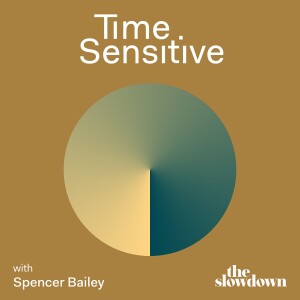
Glenn Adamson on Craft as a Reflection of Ourselves
 2021-10-06
2021-10-06
For curator and scholar Glenn Adamson, craft isn’t a quirky hobby that sits on the outskirts of contemporary culture. Rather, it’s a vital, timeless tool for teaching us about one another, and about humanity as a whole. This belief fuels his writing, teaching, and curatorial projects, which seek to unpack the many ways in which the age-old activity shapes our lives. Adamson’s work shows that craft is bigger than any single skillfully handmade object—each of which itself can serve as an important symbol of the human capacity for honing expertise over time—and influences countless aspects of society, from the Japanese tea ceremony to farming robots devised by Google’s parent company, Alphabet X. In this way, craft acts as a lens for understanding people and places across time.
Adamson, 49, has explored the virtues of craft throughout his two-decade-long career, which has included roles at Milwaukee’s Chipstone Foundation, London’s Victoria and Albert Museum, and New York’s Museum of Arts and Design. In his 2018 book Fewer, Better Things, he positions craft as a means of connecting with fundamental issues and ideas (as opposed to those that hold only momentary or superficial relevance), and explains why taking the time to appreciate handmade objects from a maker’s or a user’s perspective holds particular spiritual and psychological value. Adamson’s account of the discipline in the United States, neatly laid out in his latest book, Craft: An American History (Bloomsbury), reveals how artisans—whose trade often includes people who are disempowered by their ethnicity, gender, or both—have been consistently suppressed throughout the nation’s history, but, paradoxically, are integral to many of its greatest achievements.
His latest endeavor takes a more forward-looking approach. “Futures,” an exhibition Adamson co-curated that opens in November at the Smithsonian’s Arts and Industries Building in Washington, D.C. (on view through summer 2022), considers how craft can signal where we might be headed, and why we should be optimistic about the time to come. Over and over again, Adamson demonstrates how skilled making is about more than just beautiful objects. “Craft stands in for the whole idea of what it means to be human,” he says, “and why that matters.”
On this episode, Adamson discusses the various facets of skilled making, talking with Spencer about the value of hand-formed objects, the relationship between time and craft, and the discipline’s essential, often complicated role in the history of human progress.
Show notes:
- Full transcript on timesensitive.fm
- @glenn_adamson
- glennadamson.com
- (16:20): Fewer, Better Things (Bloomsbury, 2018)
- (52:57): Chipstone Foundation
- (53:33): Milwaukee Art Museum
- (54:16): “Postmodernism: Style and Subversion 1970–1990” (Victoria and Albert Museum, 2011)
- (55:56): The Journal of Modern Craft
- (56:04): Museum of Arts and Design
- (59:50): Craft: An American History (Bloomsbury, 2021)
- (01:17:23): “Futures” (Smithsonian Arts and Industries Building, Nov. 2021–Summer 2022)
More Episodes
 2024-09-04
2024-09-04
 2024-06-26
2024-06-26
 2023-11-15
2023-11-15
Create your
podcast in
minutes
- Full-featured podcast site
- Unlimited storage and bandwidth
- Comprehensive podcast stats
- Distribute to Apple Podcasts, Spotify, and more
- Make money with your podcast
It is Free
- Privacy Policy
- Cookie Policy
- Terms of Use
- Consent Preferences
- Copyright © 2015-2024 Podbean.com





